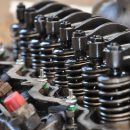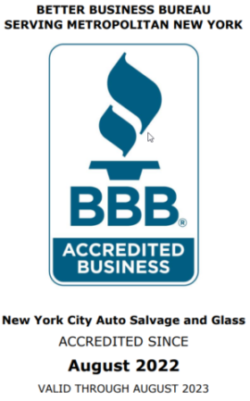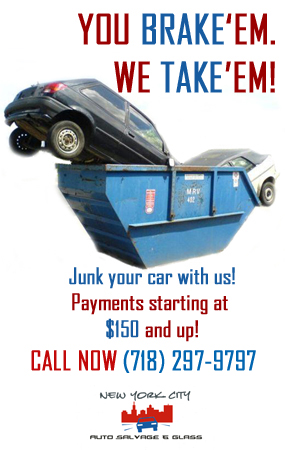The Hidden Value in a Wreck: Why NYC Junk Car Parts are a Smart Choice
Your car sputters to a stop on the BQE, the check engine light glaring. The mechanic’s diagnosis comes with a gut-punching quote for a new part, and that’s before NYC labor costs are even added. In a city where every dollar counts, there’s a smarter, more sustainable, and surprisingly reliable solution: the world of used auto parts.
Sourced from junk cars, these components aren’t just cheap—they represent a savvy choice for any New York car owner. Before you shell out for a brand-new part, here’s why exploring the hidden value in a wreck is a brilliant move.
1. The Unbeatable Cost Savings
This is the most compelling reason. The price difference between new and used parts can be staggering. A new alternator from the manufacturer might cost $500, while a perfectly functional one from a salvage yard could be under $100. A side mirror that costs $300 new could be found for $60.
For New Yorkers, this makes keeping an older car on the road affordable. When a single repair can cost more than the car is worth, used parts tip the scale back in favor of a cost-effective fix, saving you from the expense of a new car payment.
2. Go Green, Save Green: The Environmental Choice
Choosing a used part is one of the easiest ways to be an eco-friendly car owner. Think about the resources required to create a new car part: mining for ore, smelting metals, manufacturing, and shipping it across the globe. It’s an incredibly energy-intensive process.
Every used part you buy:
- Reduces Landfill Waste: It keeps a perfectly functional item in circulation and out of a landfill.
- Saves Energy: It completely bypasses the carbon-heavy manufacturing process.
- Conserves Raw Materials: It lessens the demand for mining new iron, aluminum, and other metals.
In a city striving for sustainability, this is a personal contribution to a circular economy—a win for your wallet and the planet.
3. OEM Quality Without the OEM Price Tag
There’s a common misconception about “junkyard parts.” The reality is that most used parts are Original Equipment Manufacturer (OEM) parts. This means they were made by the original car company (like Toyota, Ford, or BMW) and are designed for a perfect fit and optimal performance in your specific vehicle.
This is often a major advantage over brand-new, third-party “aftermarket” parts, which may not have the same quality, fit, or durability. Reputable salvage yards test major components like engines, transmissions, and alternators, and many offer 30- or 90-day warranties for peace of mind. You’re getting the quality the manufacturer intended at a fraction of the cost.
4. The Treasure Hunt for Rare and Discontinued Parts
For owners of classic, vintage, or less-common vehicles, the salvage yard isn’t a last resort—it’s the first and only resort. When a manufacturer stops producing parts for an older model, the only place to find that specific piece of chrome trim, an original radio knob, or a unique body panel is from a donor car.
The sheer volume and diversity of vehicles in the New York metropolitan area mean that local salvage yards are a treasure trove. You have a much better chance of finding that needle-in-a-haystack component right here in the city.
A Quick Buyer’s Guide
Ready to give it a try? Keep these tips in mind:
- Best Parts to Buy Used: Body panels (doors, fenders), mirrors, windows, starters, alternators, wheels, and interior components are fantastic candidates.
- Parts to Be Cautious About: Items that wear out with use, like brake pads, belts, and hoses, are generally better to buy new.
- Come Prepared: If possible, bring your old part with you to match it up exactly. Ask about the salvage yard’s warranty and return policy before you buy.
The next time your mechanic gives you bad news, remember the hidden value in the wreck. A “junkyard” is really a resource yard—a place where you can find quality, eco-friendly parts that make car ownership in NYC affordable again.
Read MoreDon’t Get Scrapped: How to Get the Best Price for Your Junk Car in the Five Boroughs
Is your car junk?
That old car sitting on your street in Queens, gathering parking tickets, or the one in your Brooklyn driveway that hasn’t started since the last major snowstorm—it’s more than just an eyesore. It’s a pocket of cash waiting to be unlocked. But in a city as fast-paced as New York, it’s easy to take the first lowball offer just to get rid of it.
Don’t let your asset get scrapped for pennies. Getting the best price for your junk car in Manhattan, Brooklyn, Queens, the Bronx, or Staten Island requires a little strategy. This guide will walk you through turning that clunker into the top dollar you deserve.
Step 1: Assess Your Car’s True Value
Before you pick up the phone, understand what determines your car’s worth. It’s not just a single lump of metal. A buyer sees a collection of valuable components.
- Make, Model, and Year: A 15-year-old Honda might have more valuable parts in demand than a 25-year-old obscure model.
- Key Components: Even in a non-running car, parts like the catalytic converter, alternator, transmission, starter, and even newish tires hold significant value.
- Vehicle Weight: The foundation of a scrap quote is the car’s weight in metal. Prices for scrap steel fluctuate, but a heavier vehicle will always command a higher base price.
- Drivability: If the car can start and move, even just a little, it can sometimes be sold for more to buyers who might repair it rather than just scrap it.
Step 2: Get Your Paperwork in Order
A legitimate buyer will not touch your car without proper documentation. Having your paperwork ready shows you’re a serious seller and protects you from legal trouble down the road.
- The Title is King: The most important document is the Certificate of Title. Make sure you have it and are ready to sign it over.
- Lost Title? Don’t panic. You can apply for a duplicate title from the New York State DMV. Start this process early, as it can take time.
- Lien Release: If you had a loan on the car, you must have a lien release letter from the financial institution, even if the loan was paid off years ago.
- Remove Your Plates: Before the tow truck leaves, remove your license plates. You must return these to the DMV to cancel your registration and insurance liability.
Step 3: Shop Around—Don’t Take the First Offer
This is where you make your money. A single phone call is a guaranteed way to leave cash on the table.
- Contact at least 3-5 buyers. A mix of local salvage yards (many are in the Bronx and Queens) and reputable online car-buying services will give you a clear picture of the market rate.
- Be Honest About the Condition. Provide the VIN, mileage, and an accurate description of the car’s problems. Honesty now prevents a buyer from trying to lower the price upon arrival.
- Ask The Right Questions. When you get a quote, your work isn’t done. Ask these crucial follow-up questions:
- “Is free towing included in this offer?” Towing in NYC is expensive and difficult; never pay for it separately.
- “Are there any hidden fees or charges?”
- “Is this quote guaranteed, or will it change when your driver arrives?”
- “How and when will I be paid?” The only acceptable answer is cash or a certified check on the spot.
Step 4: Beware of Red Flags and Scams
Unfortunately, the junk car industry has its share of bad actors. Watch out for these warning signs:
- The Bait-and-Switch: Offering a high price over the phone only to drastically lower it in person by finding “unexpected” problems. A guaranteed quote prevents this.
- Pressure Tactics: Any buyer who pressures you to make an immediate decision is likely not offering the best price.
- Vague Payment Terms: Avoid anyone who says they will “mail you a check” after they take the car. No cash, no keys.
Step 5: Sealing the Deal
On the day of the pickup, be prepared.
- Be present when the tow truck arrives to ensure it’s the company you spoke with.
- Have the signed title and a pen ready.
- Get a Bill of Sale or a receipt from the tow driver that includes the company’s name, the date, and the price paid.
- Count your cash before you hand over the keys and title.
By following these steps, you transform from someone just getting rid of a problem to a savvy seller maximizing an asset. That hunk of metal is worth more than you think—especially when you know how to sell it.
Read MoreVehicle System Parts: What You Need to Know for Safe Driving
Vehicle suspensions ensure a smooth ride. This page discusses the system parts, their function, and maintenance.
The engine powers the wheels.
Brakes: Brakes are its main safety feature. The system properly distributes braking forces to the wheels, decreasing skidding and enhancing braking.
Battery: The battery provides power. A weak or dead battery can influence vehicle performance.
Suspension: The system’s major component connects the wheels to the vehicle’s body. Shock absorbers, struts, springs, control arms, and sway bars give stability and control.
Transmission: This is responsible for transferring power to the wheels. Problems can impair car handling.
Exhaust: The exhaust system eliminates exhaust and reduces emissions.
Fuel: The fuel system feeds, and any issues can impair vehicle performance.
Cooling: The cooling system prevents overheating. A failing cooling system can influence vehicle performance.
Interior: The driver and passengers sit inside. A clean interior can improve vehicle comfort and safety.
Steering: This system controls the vehicle’s wheels. The system evenly distributes forces to the wheels for stability and control.
Tires: Only the tires touch the road. A well-maintained system can maximize tire performance.
Oil: Lubrication parts with oil extend their longevity.
Alternator: The alternator powers the vehicle’s electronics. A faulty one can impact vehicle performance, especially the system.
Spark plugs: Spark plugs ignite fuel to generate power. Spark plugs maintenance improves performance.
Radiator: The radiator prevents engine overheating. A faulty radiator can influence vehicle performance.
Transmission: The transmission’s clutch provides smooth gear changes. A faulty clutch can influence car handling.
Drive belt: The drive belt delivers power to the alternator, water pump, and power steering. Damaged drive belts can compromise vehicle performance.
Brake pads: Friction slows or stops the vehicle. Brake pads maintenance improves vehicle safety and performance.
Air filter: The air filter keeps dirt and debris out of the engine. Maintenance improves performance.
Wheel bearings: Wheel bearings support and rotate wheels. Wheel bearing failure can influence vehicle handling.
Read MoreHow to Identify Water Damaged Cars from Hurricane Ian
Is it Easy to Find Spare Parts for Toyota Cars in the US?
When your Toyota car needs a spare part, it can be easy to find the replacement you need. All of the major auto parts suppliers carry parts for Toyotas, and there are many dealers located throughout Brooklyn. You can also find many independent auto repair shops specializing in Toyota repairs. With so many options, you should be able to find the part you need without much difficulty.
If you live in Brooklyn, there are plenty of places to get Toyota parts. Many auto parts stores carry parts for Toyotas and several dealerships in the area. You can also find independent auto repair shops that specialize in Toyota repairs. With so many options, you should be able to find the part you need without much difficulty.
However, that doesn’t mean that every auto part is easy to find in New York. Some of the most common parts that New Yorkers have trouble tracking down are air filters, spark plugs, hubcaps, and windshield wipers. While most auto parts stores will carry these items, they may not have them in stock at all times. So if you need one of these parts, it’s best to call ahead and see if they have it in stock. If not, they can usually order.
In general, it’s not difficult to find Toyota parts in the US. With a little bit of research, you should be able to find what you need without any problems. You can also reach out to a local salvage yard or junkyard. You may be able to find the part you need at a fraction of the cost of buying it.
So there you have it, finding Toyota parts in the US shouldn’t be too difficult. Just remember to do your research, and you should be able to find what you need without any problems. Thanks for reading!
Read MoreWhy Are Diesel Engines Being Phased Out?
Over the recent years, diesel engines seem to be dying on the road as more countries become environmentally conscious. Not long ago, the frugal, low-CO2 diesel cars were being praised as the solution to hard-pressed dreams of drivers: a fuel that would enable you to pull off lower exhaust emissions, fuel consumption, effortless grunt, and run costs for higher miles-per-gallon fuel economy.
However, the growing concern of climate change should be a concern for you as a diesel car owner. Many governments around the world have agreed to impose policies that will clean up internal combustion engines by 2030. This was after the ‘VW Dieselgate’ scandal, which revamped the production of electric cars and made diesel lose public trust. Another reason for phasing out diesels is because they have been associated with health-related problems caused by diesel fumes. Studies have shown that diesel fumes can increase risk for lung cancer more than six times in non-smokers and up to four times in smokers.
As a driver owning a diesel engine, the future for your vehicle may be bleak and uncertain. Luckily, the alternatives are not all that bad. For starters, you can recycle your vehicle and sell it for auto parts at a junk shop. A good example of a shop is the New York City Auto Salvage & Glass shop located in Brooklyn.
There are also electric cars that offer you an opportunity to have a more environmentally friendly vehicle if they’re charged by renewable energy sources. Consequently, you would be assisting in the global fight against climate change.
You can also opt for hybrid cars, which are becoming more common as their operating costs are lower compared to diesel engines. Hybrid cars combine parts from both conventional and electric cars making them more efficient and cheaper compared to conventional cars.
Read More








